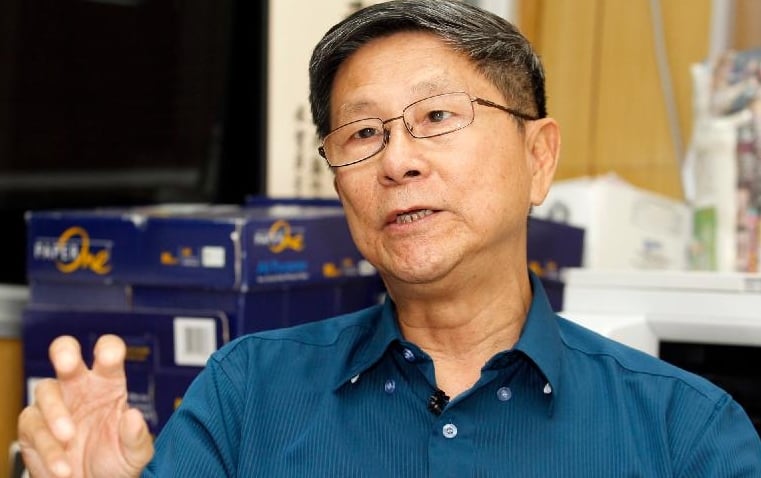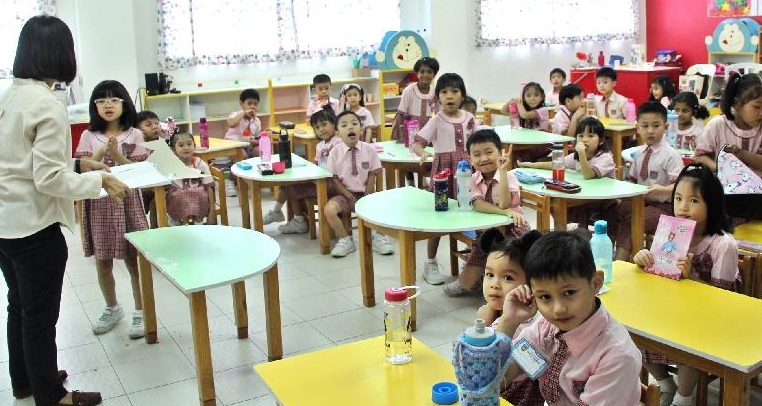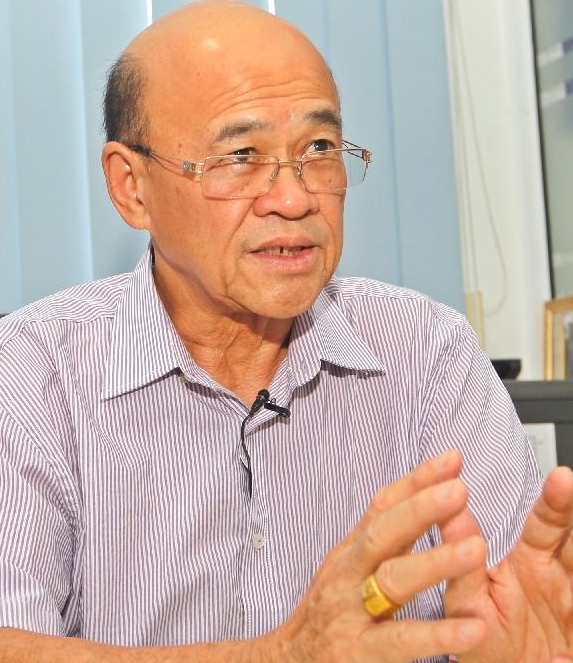Brunei became the first Southeast Asian country in 2014 to implement the hudud law over different stages, with full implementation in April 2019. However, to qualm international outcry, Sultan Hassanal Bolkiah announced on the eve of the start of Ramadan in May 2019 to suspend the death penalty for gay sex violators.
Outsiders might tend to believe that the country's Islamization policy would further restrict the lifestyle of non-Muslims as well as the development of Chinese education and culture in the country.
To date there are eight Chinese schools in Brunei, all government-run. Five of them offer only primary school education, namely Chung Hwa School Tutong and Chung Hwa School Kiudang, both in Tutong district, and Chung Lian School Sungai Liang and Chung Hwa School Labi in Belait district, and Pei Yu School Temburong in Temburong district.
The other three offer kindergarten to Form Five Chinese language education, including Bandar Seri Begawan's only Chinese school Chung Hwa Middle School and Chung Ching Middle School Seria and Chung Hua Middle School Kuala Belait in Belait district.
Good potential
Principal Sim Jeng Siang has been serving at Chung Ching Middle School since 1974 and has witnessed the whole development of the Chinese language education in Brunei post-independence.
To him, there is still a lot of potential for Chinese education in the country provided that the teaching method, philosophy and education attitude are changed.
Sim said Chinese education had been in existence in Brunei for almost a hundred years now.
"Early Chinese schools taught everything in Chinese, except language subjects like English and Malay."
Following the implementation of new educational policy, Chinese was no longer the primary teaching medium.
While Malay is a compulsory subject at schools, English is actually the main teaching medium.
English, Malay and Jawi are all compulsory subjects and it will inevitably add to the burden of students if they have to learn another language, Chinese.
"Learning Chinese could be a very tough thing for students in the absence of government support."
Many parents will tend to overlook their children's progress in Chinese education. As a result, the learning environment for Chinese is deteriorating.
"Chinese is used less and less often nowadays. Even the kids speak English among themselves."
Due to the relatively low percentage of Chinese population in Brunei, there are actually more non-Chinese students than Chinese students in Brunei's Chinese schools today.

Liberalization
However, following the liberation of government's education policy, private schools which did not teach Chinese language would now be allowed to set up Chinese classes.
"They are just teaching very basic Chinese due to lack of manpower and effective methods, not to mention relatively low willpower.
"Many schools have tried to introduce cultural activities like dancing, singing and lion dance to reinforce the students' understanding of the Chinese culture, mainly to help promote intercommunity harmony among Bruneians from different ethnic backgrounds."
Among non-Chinese students who learn the language are members of the royal family.
"Of course their Chinese level is not high, but most importantly they must not resist the culture, and I hope the mainstream society will pay more attention to the Chinese language education here in view of the rise of China as a global power.
"We cannot teach Chinese like in the past. The language must be applied in day-to-day applications and through all kinds of methods to make the children love to learn it, including singing, dancing, handicraft and use of multimedia tools for teaching.
"Of course, the teachers must put in more effort but surely we cannot use the old ways of teaching any more."

Keep the school running
Like in Malaysia, Chinese education is not part of the country's national education system. As such, all expenses involved are self financed or by donations from private companies and members of the public.
Of the eight Chinese schools in Brunei, Chung Hwa School Labi is the smallest, with an enrollment of only about 20.
The school board chairman Yong Kim Sin said admittedly that if the school is closed, it may not be possible to apply for permit for another Chinese school in the future, meaning the number of Chinese schools in Brunei can only get fewer and fewer, and this definitely does not augur well for the the development of Chinese education in the country.
As such, no matter how hard it is, the local Chinese community must strive to keep all existing Chinese schools running.
"As the government does not provide any allocations or allowances, we will need to raise funds from the public to continue running the school.
"Fortunately the local Chinese community has been extremely supportive, and we still can raise enough money each year to pay for the school's expenses."
Declining in popularity

Local Chinese associations and business organizations have been experiencing sharp decline in membership.
Raymond Hong, chairman of Hainan Association, said early clan associations were set up to take care of migrants from China and other places but today, they are no longer in demand as young people can go without such associations.
He laments that traditional Chinese culture is slowly drifting into oblivion.
"For example, fewer and fewer people speak Chinese dialects now, except middle age and senior citizens."
Meanwhile, Belait Chinese Chamber of Commerce president Loo Soon Nin feels that increasingly people are getting socially distanced nowadays, thanks to the advancement in communication technology. Joining a clan association is no longer the priority for most people.
"The Chinese today are no longer the same as in the olden days, when the community was small and people knew one another very well.
"Today, people don't even want to go out as they can get everything online."
Tai Poo Association chairman Koh Puey Mau is of the opinion that the refusal of incumbent leaders to step down is the reason their associations lack new blood.
Because of this, young people are not keen to join the associations.
The 70-year-old leader says he plans to retire in a year or two to give way for young people.
"They have a lot of new ideas. We must trust that they can do things better than us."
ADVERTISEMENT
ADVERTISEMENT


































